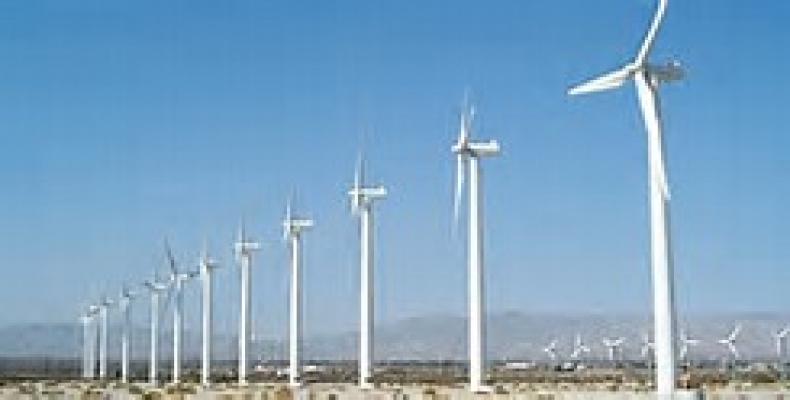Havana, October 14 (RHC)-- Cuba is implementing a renewable energy program that will allow an increase in the output of those sources up to 24 percent of the country´s electric generation capacity by 2030.
Addressing a National Conference on Science, Technology and Innovation, the Director of Renewable Energy at the Energy and Mining Ministry, Rosell Guerra, said that the program includes the construction of 13 big wind farms with a total output of 633 megawatts; the setting up of solar panel fields with a 700 megawatt capacity; 19 bio-electric facilities closed to sugar mills with a production capacity of 755 megawatts, and another 74 small hydroelectric plants that would produce 56 megawatts.
There are also other projects that can produce electricity from the processing of biomass, solar energy, and the use of urban, organic, industrial and agricultural wastes.
The expert said that the program includes the setting up of 200,000 solar heaters in hospitals, homes, industries, and the introduction of LED technology in street and home lighting, as well as the use of solar panels in 21,000 homes located in remote areas.
The national conference, underway in the eastern Havana municipality of Cojimar, is being attended by 200 members of the country's scientific community, particularly in priority sectors such as energy, food production, health and the environment.


